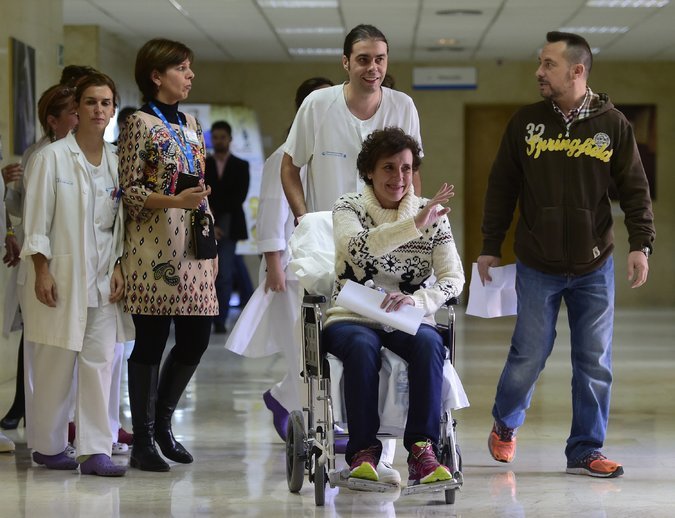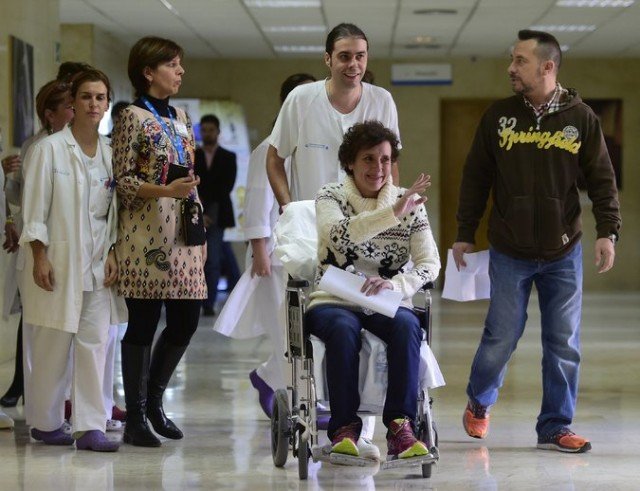
Teresa Romero, the Spanish nurse who became the first person known to have contracted Ebola outside West Africa in the latest outbreak, has given an emotional account of her ordeal as she left hospital.
Teresa Romero, 44, said she had clung to memories of family when she thought she was dying and still does not know how she caught the disease.
She had treated two returning Spanish missionaries who later died.
Teresa Romero vowed to donate blood to other Ebola victims until she “ran dry”.
In her first press conference after being discharged from the Carlos III hospital, she also condemned Spanish officials for putting down her dog.
She said they had unnecessarily “executed” the mixed breed Excalibur.
On her release from hospital, Teresa Romero read a statement, saying: “When I felt I was dying I would cling to my memories, to my family and my husband, I was isolated and I did not have any contact with the exterior except with (husband) Javier by telephone.”
She said she felt the disease “did not matter to the Western world until there was an infection here”.

She added: “I don’t know what failed, or if anything failed. I just know that I don’t hold any grudges.”
Teresa Romero recovered after being given a variety of treatments including blood plasma from survivor Paciencia Melgar.
She said that she wanted to meet the nun and “give her a big hug”.
“I can never be grateful enough,” she said.
An antiviral drug was also given to Teresa Romero but the hospital was unable to say which method had been successful.
The nurse said that if her blood helped cure another Ebola sufferer she would “repeat it again until I run dry”.
Teresa Romero also thanked the hospital staff for their support and said it would have been “impossible” to save her life without it.
Hospital chief Rafael Perez-Santamarina told reporters it was “excellent news after a very complicated month for everyone”.
Teresa Romero no longer posed a risk and could lead a normal life, said Jose Ramon Arribas, the head of the Carlos III hospital’s infectious diseases unit.
Although she would be able to return to home, she would need “time for a full recovery from a very dramatic event,” his colleague Jose Ramon Arribas added.
“The main joy is that finally it’s been possible to save someone with Ebola and more importantly a colleague,” fellow nurse Esther Bellon said.
The Ebola outbreak in West Africa has killed some 5,000 people. The vast majority of the deaths have been in Guinea, Liberia and Sierra Leone.
[youtube aXxq3eKT3-Y 650]